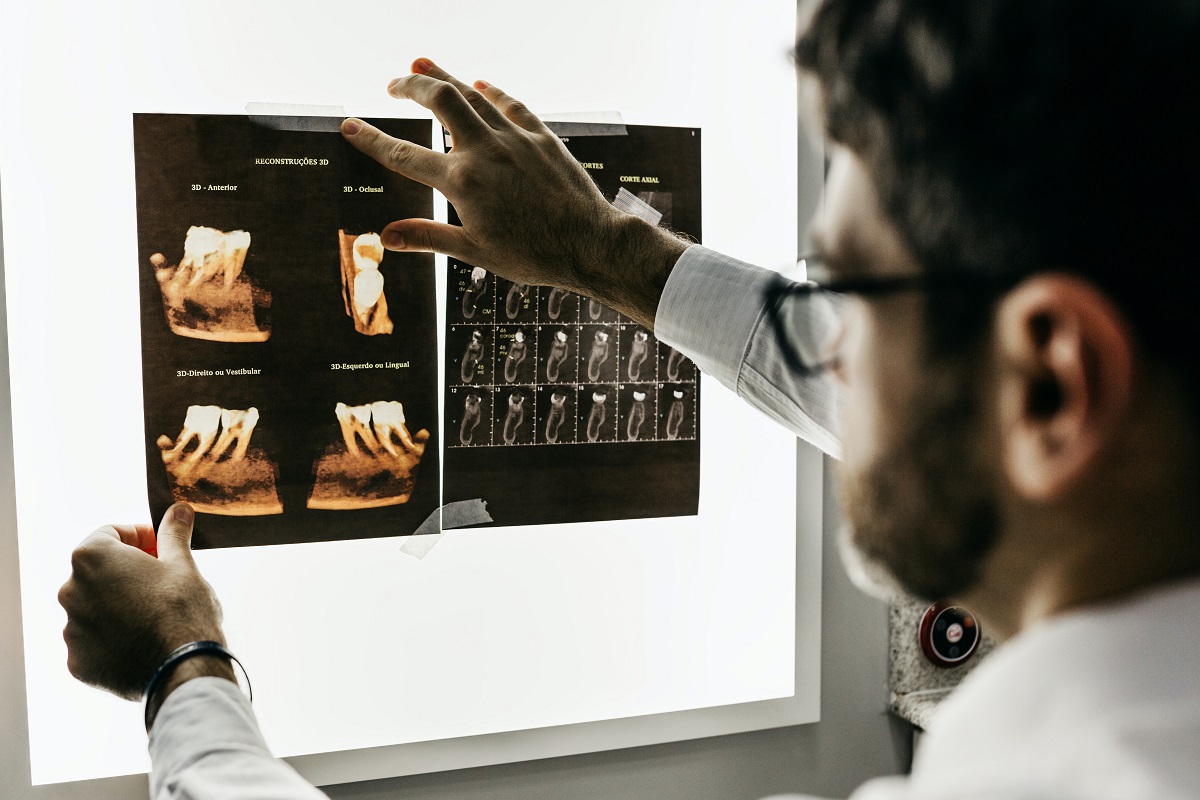How to Conduct Research as a Medical Student

Of the many factors that can shape a future doctor to become the best version of themselves - such as theoretical knowledge, clinical experience, and interpersonal skills – research can be just as important. In some cases, it can even be the single most essential part of an undergraduate student’s journey towards success.
The key takeaways from this blog include:
- Research as a medical student is vital for personal growth and progress, and it can be mainly done in 3 significant ways.
- Getting involved in research can be as simple as signing up for an extracurricular or asking your professors if there are any projects you can join.
- Doing research as a medical student is one of the best ways to ensure that you stand out from your peers, which can significantly improve your future career prospects.
- There are a couple of primary methods for research, each of which has its benefits and limitations.
Table of Contents
Significance of Medical Research
Almost all of the most significant discoveries in human history were the result of intense research or a research-based study of a particular phenomenon. Medical history is no exception.
Medical or health research provides crucial information about disease trends and risk factors, treatment outcomes or public health interventions, functional abilities, patterns of care, healthcare costs & use, and much more.
Clinical trials, on the other hand, provide additional insight into existing research by contributing to the understanding of the effectiveness and adverse effects of medical interventions. This type of real-world clinical experience is vital for comparing and improving the use of drugs, vaccines, medical devices, and diagnostics.
Funnily enough, one of history’s most important research breakthroughs - Dr Alexander Fleming’s 1928 identification of penicillium mould was actually an accident. But through this accident, countless lives were saved, and a new area of research had begun.
Research has led to the development of remarkable improvements in health care and public health, and economists agree that medical research can increase the productivity of a population, contributing significantly to the national economy (Murphy and Topel, 1999).
Research as a Medical Student
In addition to good grades and suitable interpersonal skills, it is becoming increasingly important for students to participate in and publish medical research. Actively engaging in research not only ensures a better understanding of medical theory but also forms a more adept and skilled medical practitioner who can save and improve lives.
How to Start Researching in Medical School
To begin researching, you first need to understand what you really want to study. For instance, it could be a clinical speciality, public health, medical education, technology, and so on.
Typically, you can either work on primary research, which involves data collection and/or secondary research, which uses existing data to study further or draw comparisons between the available data.
Another critical thing to consider is how much time you can spare. There are 2 main ways undergraduate students can contribute to research while in university:


- Contributing to a pre-planned or existing project by collecting and/or analysing data. Most students choose this option as it is not very time-consuming.
- Developing the skills and knowledge required to head a project, from writing the study protocol to submitting a draft for publication. Typically, this takes months or even years, so only truly dedicated and research-driven students pursue this.
Finally, consider what you want to gain from this experience. It’s a question of whether you wish to gain a specific skill, mentorship, a broad understanding of academic publishing, or maybe to establish a research network.
Remember that, in addition to specific research skills, you will develop valuable transferable skills along the way, including communication skills, organisation, time management, and medical academic writing.
Networking & Mentorship
Networking is a highly respected and necessary social skill that can get you involved in a research process a lot smoother than having to do it alone.
A direct approach would be to get in touch with your professors and see if they have research so you can join in. If a professor approached you first about a research study, you should promptly agree to it if you can commit and find it interesting. In fact, many medical schools even give students the opportunity to join research projects either as part of the curriculum or as an extracurricular.
It’s best to approach projects and professors whose area of interest aligns with yours. This way, your professors can become your mentors by sharing the knowledge and experience they’ve gained with a motivated student. This can not only significantly expand your knowledge but will help build you up into a respectable medical professional.
Joining Research Groups
Research groups are an excellent way to establish working relationships with like-minded individuals, either through research collaborations or science clubs. Both research and the medical profession are collaborative efforts, and gaining experience while working in a team can be extremely beneficial to your future career.


Your options here are joining:
- Research collaboratives/joint research programmes. These involve students from different fields of study who work towards a common research goal. These projects can result in publications, conference presentations, and seminars.
- Science clubs. These clubs allow members to analyse diverse clinical cases and gain enriching experience. Club members are always delighted to see new people join, and it’s a great way to try out experiments you might not be able to do in class.
Types of Medical Research
Studies are either observational / non-interventional (case-control, cross-sectional, etc.) or interventional (e.g., randomised control trial).
The most common types of research conducted by medical students are case reports and case series, clinical research, and literature reviews.
Case Reports and Series
Case reports are comprehensive reports of the clinical course of an individual patient. They usually describe a unique occurrence or present new evidence of a specific pathological entity and its subsequent treatment.
They have a relatively fast timeline and little need for funding, if any. However, they contribute the most basic and least impactful scientific evidence and provide minimal exposure to the scientific process.
Au contraire, case series examine multiple patients retrospectively. Researchers make statistical calculations to deduce significant conclusions, rendering these studies great for medical students who want an all-around educational experience.
Clinical Research
The peak of evidence-based medical research, clinical research standard study designs include:
- Case-controlled trials
- Cohort studies
- Survey-based research
This type of research requires Institutional Review Board (IRB) monitoring, strict protocols, large sample sizes, and a considerable amount of time and funding. However, this type of research significantly contributes to the advancement of medical knowledge. Typically, it takes medical students about a year of experience to develop an understanding of what it takes to conduct clinical research.
Review Articles
Literature reviews are a collection and summarisation of literature on unresolved, controversial, or novel topics. Different categories of reviews with their impact include:
| Categories | Evidentiary Value |
| Meta-analyses | Very high |
| Systemic reviews | High |
| Traditional literature reviews | Modest |
Review articles allow for remote collaboration and the development of expertise on the subject matter. However, they can take a long time to complete, and publishing this type of research takes a lot of time and effort.
Is Research A Prerequisite for Medical Schools?
While a background in research can certainly help your application, it’s not mandatory. Not all students have access to the same opportunities, so it only seems fair not to include it as a requirement.
However, it is common for most medical students to have some form of background in medical research before applying to medical schools.
For instance, the Association of American Medical Colleges (AAMC) conducted a survey in 2019, and it discovered that 60% of the survey respondents participated in a laboratory research apprenticeship for college students. Among the respondents who had one or more gap year(s) between high school and medical school, 46% said they invested some of that time volunteering on some form of research.
Medicine can be a challenging but highly rewarding career, but often, finding a suitable medical school and understanding its admission requirements can be just as challenging.
Medlink Students want to see you lead a path to a fulfilling education and rewarding career. We can provide personalised advice and guidance on making the best decision for your unique circumstances. You can sign up for a free consultation with one of our academic advisors, who can help you find the perfect medical school, which will not only facilitate your participation in research but will also enable you to become a competent doctor who can succeed on a global scale.
Why Does This Matter to You?
Research can be the way you stand out from your peers.
The top medical universities with competitive postgraduate and PhD programmes are far more likely to consider you favourably if you’ve shown commitment to the medical field through research. Even employers will be more impressed by your CV or resume when they see your genuine interest in contributing to healthcare.
However, if you decide to skip research altogether, you may have a much harder time proving your skills and commitment to the medical field. Why risk being a part of the crowd when you can participate in a valuable learning experience through research?
You could even help advance the medical field one day.
Leave a Reply


About Medlink Students
Leading international recruitment company for medical students in Europe. British Council Certified Agents. 10+ years of experience and more than 10,000 students advised.








